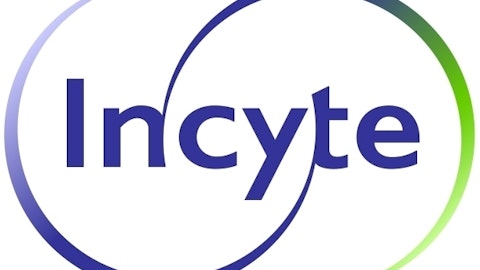Yellen’s next two largest holdings are in the $53 billion chemicals maker E I Du Pont De Nemours And Co (NYSE:DD) and the $187 billion pharmaceutical behemoth Pfizer Inc. (NYSE:PFE). Her share in the two companies is estimated at upward of $50,000 each. E I Du Pont De Nemours And Co (NYSE:DD)’s management recently announced its intent for a full or partial sale of the performance chemicals division. That division saw sales decline 7.8% last year (compared with a much smaller decline of 3% in overall sales), so management may be trying to cut a weakening division before it gets any worse.
Pfizer Inc. (NYSE:PFE) has been in a tough spot lately as generic drugs erode sales for some of its older blockbuster drugs like Lipitor, Xalatan and Detrol. The company said last month that it would separate into three internal business segments: mature drugs, drugs with long-term patents, and vaccines, oncology agents and consumer health products. While the separation could give investors more transparency, it is unlikely to boost profitability. Regardless, Pfizer Inc. (NYSE:PFE) is considered best in class for the breadth and depth of products, and the company has seen sales grow at a compound annual rate of 4% over the past five years, more than enough to support the 3.4% dividend yield.
Yellen also holds smaller stakes (up to $15,000 each) in specialty chemicals manufacturer Cytec Industries Inc (NYSE:CYT), digital TV distributor DirecTV (NASDAQ:DTV), defense contractor Raytheon Company (NYSE:RTN) and business electronics provider NCR Corporation (NYSE:NCR). Her position in Raytheon is probably the most controversial, given its ties to defense spending, but the stock pays a 2.9% dividend and has been a solid performer over the past five years.
A weighted average of the seven stocks has easily beaten a portfolio of stocks in the S&P 500 since the market trough, with runaway leaders like the 639% return on Cytec Industries Inc (NYSE:CYT) and the 455% return on NCR Corporation (NYSE:NCR). Only Raytheon Company (NYSE:RTN) underperformed the general market, with a 159% return compared with 168% for the S&P 500.

Risks to Consider: Yellen’s financial disclosure offers an interesting look into her investments but does not show why she chose individual positions. As an economist, she may be betting more on the future of the particular industries rather than the companies themselves. Investors need to develop their own outlook for the individual companies and industries in their portfolio.
Action to Take –> I use a similar strategy in my own portfolio, a diversified mix of funds with smaller positions in individual picks. This so-called core-satellite strategy is a popular and effective way to get market returns from the majority of your portfolio while still benefiting from the success of a few individual companies.
P.S. — You don’t have to be the heir apparent to Ben Bernanke to figure out which sectors of the economy are poised to do well in the coming years — and which companies in those sectors are solid enough stocks to buy, forget about and hold “Forever.” To learn more about these stocks — including some of their names and ticker symbols — click here.
– Joseph Hogue
Warren Buffett’s Top 5 Stocks
Buffett’s firm, Berkshire Hathaway, holds dozens of stocks. But these five make up 75% of its portfolio… worth $65 billion. Click here to get Buffett’s top 5 stocks plus his 16 latest buys, FREE.





